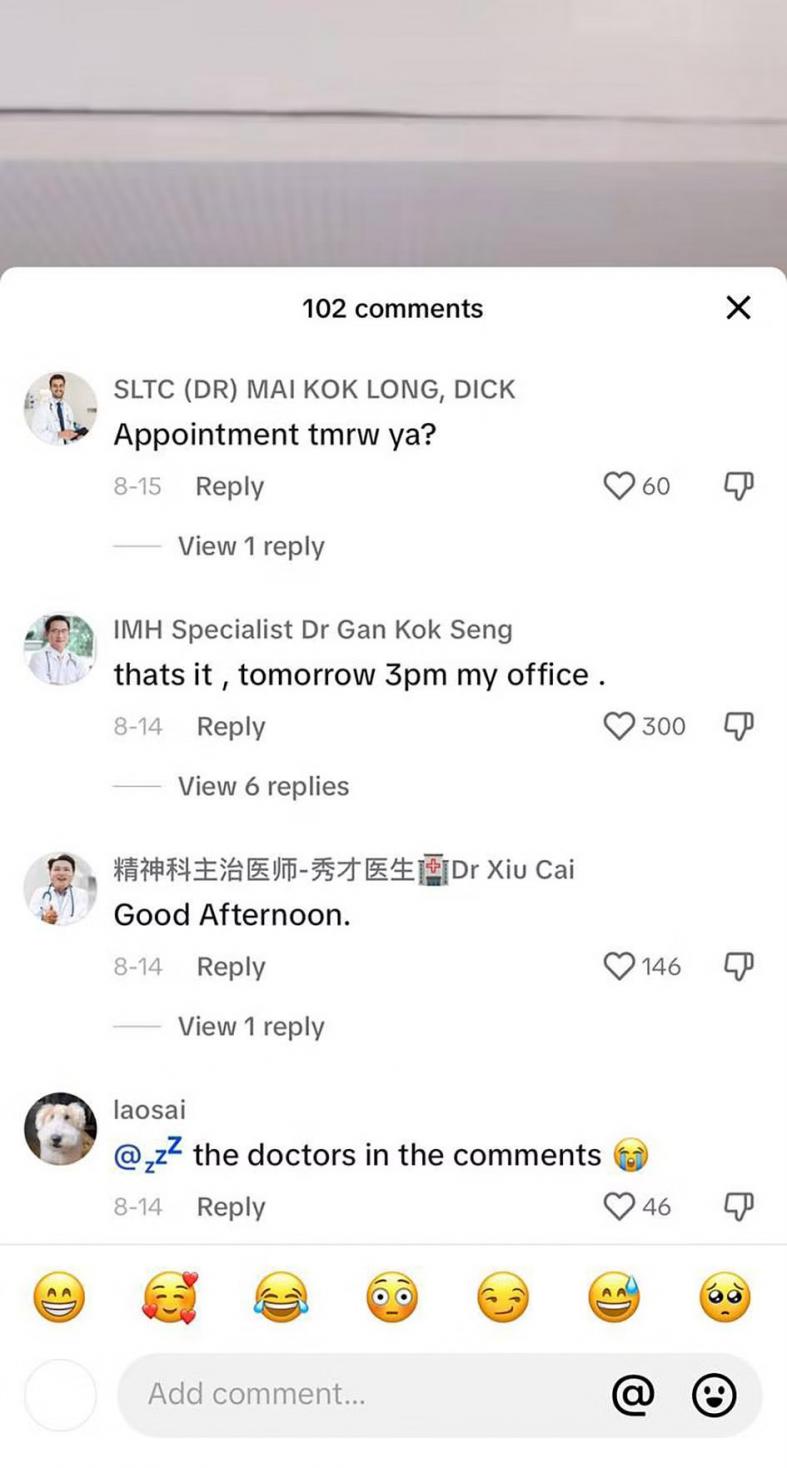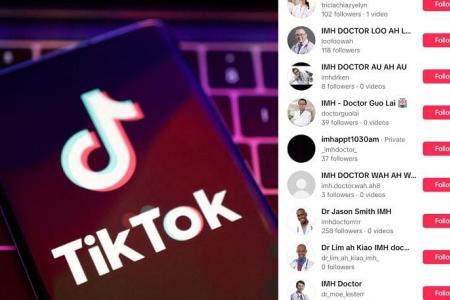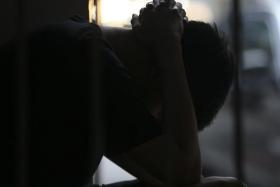TikTok users posing as doctors from IMH to post nuisance comments
SINGAPORE - A growing number of TikTok users are posing as doctors from the Institute of Mental Health (IMH) to post nuisance comments on the video-sharing platform, a trend that has sparked concern among experts.
These online trolls, who have nicknames like “Doctor Daniel Zhang of IMH”, have in recent months left comments on videos that usually say something like “See me in my office” or “Remember to take your prescribed medication”.
Their targets of choice are usually videos of TikTok creators dancing in public or doing other silly and unusual things.
While they are meant to be tongue-in-cheek, experts and other users say the comments could trivialise mental health issues.
TikTok user Wabikaeru, who suffers from generalised anxiety disorder, found the trend silly and funny when he first came across it four months ago. But the content creator, who wanted to be identified only by his TikTok handle, was concerned when it became increasingly common.
“Now, day in and day out, people who log on to TikTok are reminded that going to IMH to see a doctor should be a matter of shame as you will be the butt of other people’s jokes.”
Wabikaeru, who lost his grandmother to suicide, told The Straits Times: “People don’t make fun of patients seeking help for other issues. Why should those with mental health issues be the subject of jokes daily?”
An IMH spokesperson said the hospital is aware of this trend.
“These accounts are disrespectful of our doctors, but we are more concerned about the resulting discussions on these accounts that trivialise the challenges of persons living with mental health issues,” added the spokesperson.
The troll accounts use stock images of doctors or public figures, such as North Korean leader Kim Jong Un, as their display photo. Many usernames play on vulgar Hokkien phrases, and some make references to secret societies.
Some comments by these account users tell video creators to visit IMH for a “medical review”, “comprehensive urine test” or a “voice appointment”.
While these account users might be driven by the desire for validation by being the source of jokes, they are contributing to the association of humour with mental health conditions, said Nanyang Technological University psychology professor Albert Lee.
“When funny things are repeatedly framed in terms of mental illnesses, it is a matter of time before people begin to take mental illnesses less seriously,” he said, adding that this would cause people to be less willing to seek professional help if they need it.

Clinical psychologist at The Psychology Practice Shawn Ee said it could cause viewers to misdiagnose others or themselves if they take these comments seriously.
“If we see behaviour that we don’t understand, we cannot just make comments like these,” said Dr Ee, who used to be a doctor at IMH.
The trend may also create the perception that mental health treatments are quick and easy.
Some content creators have chosen to voice their concerns about the trend on the platform. Wabikaeru said in a video these accounts and their comments can make IMH patients feel like pariahs.
Others such as psychology research assistant Cheryl Cheng said on TikTok that the trend stigmatises mental health issues.
“It creates a divide between the neurotypical people versus people who are dealing with mental health issues,” the 25-year-old told ST.
“If someone who is actually dealing with mental health issues sees these comments, they may feel their experiences are being invalidated.”
Her video drew more than 500 comments, with many netizens divided in their views – some agreed with her, but others felt she was taking harmless jokes too seriously.
Ms Sabrina Ooi, co-founder of Calm Collective Asia, a social enterprise that aims to normalise conversations about mental health, said these “distasteful remarks” have catalysed fresh discussions on the topic.
“Their comments reflect some very honest sentiments that our society has held towards people with mental health conditions and the healthcare system,” she added.
Get The New Paper on your phone with the free TNP app. Download from the Apple App Store or Google Play Store now


